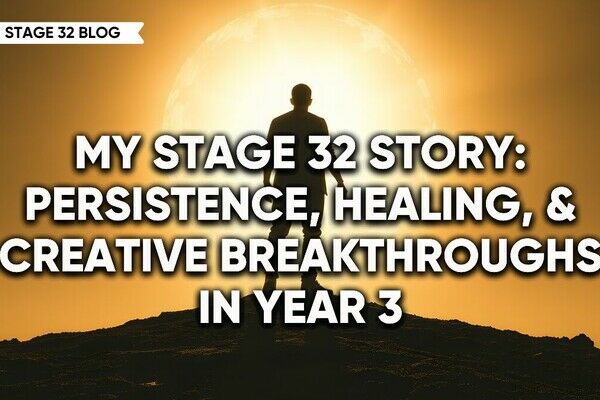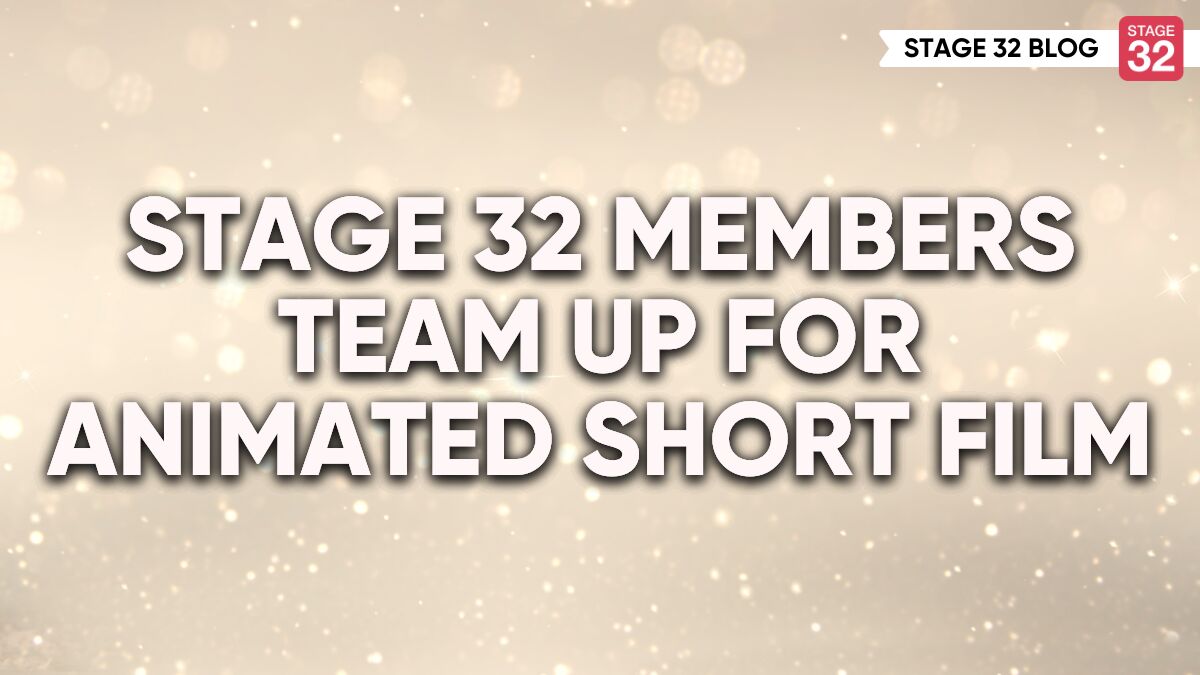The Art of Falling: Part Two
Okay, you are a licensed Stunt Performer. What now?
Firstly, I used to say to myself, "Now that you have the license to act as a human crash dummy, don't be a dummy!" What it means is to look after yourself. Because the most challenging work, the most difficult part, is just beginning.
After your initial grading, you will become a stunt action personnel (again, this may vary from country to country). What it means is that you are pretty much a trainee. You can be onset and work; however, you are not permitted to perform major stunts. This is an opportunity to appreciate the work involved, to get to know what it feels like and what it is like onset, and to hone your skills.
Build connections
But before you even step on set, there's a long journey ahead. As in any job, particularly in our industry, networking is essential. This is the time for you to begin. Make sure that you become a member of your equity. Then try, as much as possible, to participate in any event organized by the equity. Check out what websites are available for performers and particularly for stunt actors. In Australia, for example, there is the Stunt Book, a website that lists all graded stunt actors and coordinators. It is definitely worth investing money in because that is where coordinators and casting directors go to find their talent.
However, before joining, ensure that your photos, CV, and showreel are top-notch. This is not the same as grading when the footage quality did not matter. You are now expected to have professional material showcasing your skills and talent. Don't be Mr. Scrooge, invest money and make sure that you show yourself in the best possible light. Find someone to take photos and ensure those are spot on as well. You might want to include a few different looks. Finally, create a professional resume. Your resume should contain all relevant training (no need to mention you learned to crochet and studied chess in high school), a list of your capabilities, and your skill level within each of them. Don't forget to include physical measurements, including height, weight, and shoe size. This is particularly vital for doubling. Lastly, list any film, TV, or live performance credits and union affiliations.

Finding opportunities
Now, to find work, you must prove you have some experience. But how do you gain that experience if nobody gives you a chance? It is kind of a catch-22 situation: a tricky situation. The best option is to look for independent productions and low-budget movies that are still professional enough to have a stunt coordinator on site but low-budget enough and independent enough to hire somebody who is just starting out in the business.
Another option is to try live shows. As I mentioned before, amusement parks are a fantastic training ground for any performer, be they singers, actors, dancers, or stunt performers. Often parks are more flexible in terms of experience and grading status. There are roles that are suitable for different skill sets and skill levels. Another great thing about working in parks is that you get to do it over and over and over again. Yes, this may get old pretty quickly, but initially, it is a perfect way to learn about precision, continuity, and safety. Another great aspect is performing in front of a live audience and confronting those nervous jitters we all get. But we conquer them and still perform at 100%.
Doing 6 to 10 shows five days a week teaches you responsibility, safety, work ethics, and of course, self-evaluation and self-care. And let's not forget performing in a park is also loads of fun. It is not as stressful and, in many ways demanding or time-challenging as acting in a movie or a high-budget TV show, and it is more laid-back. You don't have to worry about losing light, blowing the budget, or paying an entire crew over time. You have more time to focus on your skills and ability to work as part of a cast and on delivering the best performance day in and day out, sometimes for months.
It may sound tedious, and it can become tedious unless you learn to find something new and something exciting in your performance. Again, it is a valuable skill for any performer - to keep it fresh to ensure that the audiences are not getting second best performance because you're just too bored.
At the same time, you must ensure that everything is safe and that you keep the choreography or timing essentially the same as when you began. Remember, timing and precision are everything. You obviously have to work with and around lights, sets, props, and sound equipment, but you must ensure that you hit the mark every time and keep yourself and your castmates safe.
I will discuss the intricacies of stunt acting later. However, to make it fresh and keep it exciting for you and the audience, one trick is to find a different objective every time you do a show. Essentially, it is trying to discover something new within the old. It's as if you are living the story every single time. Truth be told, since it is a live show, and there are different people in the audience, every show is different. I believe in listening to and communicating with the audience, thus creating a dialogue with them. And that is what gives fresheners to your performance.

Build more connections
Now you might have gotten that job in a park and started creating your network. The next step is keeping your skills polished and growing. This is where networking once again comes in. Don't be afraid to ask questions, and don't be afraid to ask for advice and introductions. This industry may seem cutthroat, but generally, people in the business are open to helping those who are starting out and keen to learn. Approach stunt actors, approach stunt coordinators or 1st ADs, and ask them about chances for work or even opportunities to train. Many stunt actors get together and train. They get together for a barbecue, crash a couple of cars, fall off a few buildings, and sometimes even do major body burns. Find them and network. You can also ask to come on set and observe or help with mats and safety. You may not get to perform stunts, but you will get your foot in the door. It can take time but persevere.
Another way to network is to join various clubs or enroll in courses or workshops run by the stunt industry. There are many workshops on offer. There are gymnastics centers and stunt gyms, martial arts clubs owned or run by stunt actors, and of course, there is the equity, your union. Keep an eye out for workshops and opportunities to train with industry people.
And, of course, always be professional and fun. Why? Because at the end of the day, if you are up against somebody with the same set of skills, but you're fun, you are optimistic with a "can-do-attitude," you will get the job more likely than somebody who is that proverbial pain in the neck. If you have to spend long and often grueling hours onset, you too would prefer it be with someone pleasant and fun to be with.
Another essential part of networking is creating a presence on social media. This has become a vital element in the business, and I am sure I don't need to talk much about it. Create a profile, follow people, like their posts, leave comments and be gracious, celebrate the success of others, give shout-outs, and tag people in your posts. Also, make certain you know how you want to be perceived and that anything you post promotes that image.

Don't forget self-care!
Another crucial aspect of being a stunt actor is self-care. That includes having the proper equipment. Invest money into your career. I have met stunt actors who are starting out and who feel wearing protection is a sign of weakness. It is not! It is a sign of stupidity. When I was starting out, a renowned Australian Stunt coordinator, Spike Cherie, told me, "protect your assets, and that is you." Remember, stunt acting is all about the illusion, the shock factor! It's not about getting hurt. Naturally, there are times when wearing protection is not possible. Those are the times you must tough it out. On the other hand, there are many times when you can easily wear padding or armadillos that protect you and, therefore, your livelihood. Remember, there are times when you have to perform a stunt multiple times, and you don't want to get hurt in the first run-through.
Truth be told, there will be times when you will get hurt. That is pretty much unavoidable. It just depends on how much you will get hurt and how long you'll be out of action. Scratches and bumps don't count. They are to be expected. Be prepared for a bit of pain. However, if ever you do not feel safe or competent performing a stunt (it may not be your area of expertise), don't be afraid to say no. No, I don't feel safe performing this stunt. No, I am not capable of performing this stunt. Nobody will blame you. If anything, they will see you as professional, and you will garner more respect (unless you have lied on your resume and made yourself out to be quite the Mr. Incredible!) You have to hang in there and persevere. Your time will come.
It's about the body AND mind
Speaking of persevering and time, chances are there will be moments when you will feel disgruntled and perhaps even depressed. The work will not be coming, and you will feel like giving up. Don't! It is no surprise that the entertainment industry has a high rate of depression. It can be a lonely business. Disappointment is common. There will be times with no work, and all you will hear is "no thank you," "no thank you," and "no thank you."
How can you combat that? How can you stay positive and attract positive energy? It is very hard. We succumb to the blues. That is when you must practice self-care. You must look after yourself and ensure you don't end up hurting yourself through a lack of concentration and focus. I suggest meditation which can be different for different people. I find it difficult to meditate, to sit and breathe. For me, meditation is going for a long run or a swim. Anything that will get your mind off your problems and get those endorphins pumping through your system. This also keeps you fit and in fighting conditions which is a definite bonus. I find training great for thinking up stories I'd like to write or stunts I would like to film for my showreel. Training daily keeps me in top physical but also mental form. I do cardio on my cross-trainer. I work out in a gym, and, of course, I stretch. It's all part of keeping my tools – my body and my mind - in mint condition.
You can and should do other things, like getting a good massage, spending time with the family, playing with the kids, or watching a great movie.
You have to stay positive because only then will you be in top form.
Let's hear your thoughts in the comments below!
Got an idea for a post? Or have you collaborated with Stage 32 members to create a project? We'd love to hear about it. Email Emily at blog@stage32.com, and let's get your post published!
Please help support your fellow Stage 32ers by sharing this on social. Check out the social media buttons at the top to share on Instagram @stage32 Twitter @stage32 Facebook @stage32 and LinkedIn @stage-32
| How to Efficiently Rewrite Your Screenplay |
| Stage 32 Members Team Up For Animated Short Film |
Search Stage 32 Blog
There are now 4029 blog posts for you to enjoy. Search them all by tags below.
Acting, Advice, Cinematography, Coffee & Content, Composing, Contests, Distribution, Featured, Filmmaking, Financing, Inspirational, Networking, Producing, Screenwriting, Success Stories, Tips, Trending,Relevant Tags
Recommended Articles

My Stage 32 Story: Persistence, Healing, & Creative Breakthroughs in Year 3

Insider Intel: 2026 Predictions

Coffee & Content: Reinvent the Story, Reinvent the Industry

Coffee & Content: Opening Doors & Taking Control of Your Creative Path

Stage 32 + Mark Creative Management Partner For Exclusive Opportunity for Writers to Land Representation!

Happy Thanksgiving From Stage 32: We Are Thankful For YOU

Insider Intel: Packaging your Project- The Chicken or the Egg Dilemma

Stage 32 + AFM 2025 Education Partnership - Join RB & Celebrate 10 Years!

Don't Let the Momentum of November Write Club Die: How to Stay Active Into 2026 & Beyond!






